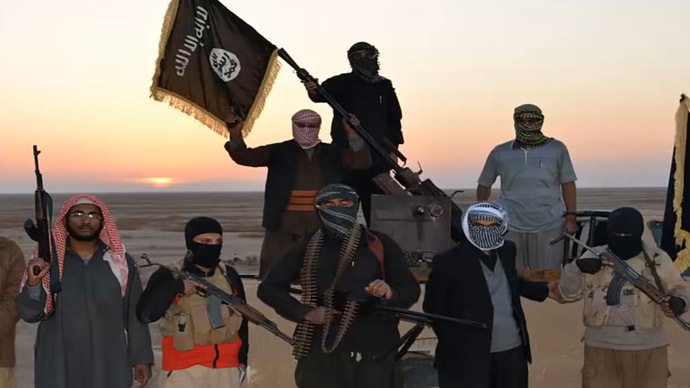Is The U.S Lying About The War With The Islamic State?
The war against the Islamic State

NEW DELHI: The United States is leading a coalition against the Islamic State (Daesh) in Syria and Iraq. The coalition, official reports clearly state, have met with repeated success, effectively pushing back Daesh militants in several areas.
Reports from the ground have consistently differed, showing Daesh having captured new territory and outlining the rising civilian death toll that has been a result of the US-led coalition’s airstrikes (something that the coalition itself has denied through vague reasoning). Now intelligence analysts at the Pentagon have gone a step further and said that senior officers in the US may be making things up about the war against Daesh.
A report in the New York Times states that senior military officers were revising reports from its analysts to present “a more positive picture” to the White House, Congress and other intelligence agencies. “The senior intelligence officers are flipping everything on its head,” said one government intelligence analyst as quoted in NYT, who like others spoke on condition of anonymity because he was not authorized to discuss the matter publicly. The analyst said that the complaints involve the highest-ranking officials in Centcom’s intelligence unit, run by Army Maj. Gen. Steven R. Grove.
The NYT report notes that a group of intelligence analysts have provided investigators with documents they say show that senior military officers manipulated the conclusions of reports on the war against Daesh. This was confirmed by a spokesperson for the Pentagon’s inspector general. “The investigation will address whether there was any falsification, distortion, delay, suppression or improper modification of intelligence information,” said Bridget Serchak.
The Daily Beast ran a similar story titled “50 Spies Say ISIS Intelligence Was Cooked” in which it states that more than 50 intelligence analysts working out of the U.S. military’s Central Command have formally complained that their reports on ISIS and al Qaeda’s branch in Syria were being inappropriately altered by senior officials.
The fact that so many people complained suggests there are deep-rooted, systemic problems in how the U.S. military command charged with the war against the Daesh assesses intelligence, the report points out. The Daily Beast quotes a defence official laying credence to the above, “The cancer was within the senior level of the intelligence command,” the unnamed official says.
Two of the officials who spoke to The Daily Beast said that analysts began airing their complaints in October in an effort to address the issue internally and only went to the inspector general when that effort failed. Some of those who complained were urged to retire, one official familiar with the report told The Daily Beast. Some agreed to leave.
The accusations suggest that a large number of people tracking the inner workings of the terror groups think that their reports are being manipulated to fit a public narrative. The allegations echoed charges that political appointees and senior officials cherry-picked intelligence about Iraq’s supposed weapons program in 2002 and 2003, the report states.
The report states that the analysts have accused senior-level leaders, including the director of intelligence and his deputy in CENTCOM, of changing their analyses to be more in line with the Obama administration’s public contention that the fight against Daesh and al Qaeda is making progress.
The Daily Beast states that the complaints allege that in some cases key elements of intelligence reports were removed, resulting in a document that didn’t accurately capture the analysts’ conclusions, sources familiar with the protest said. But the complaint also goes beyond alleged altering of reports and accuses some senior leaders at CENTCOM of creating an unprofessional work environment. One person who knows the contents of the written complaint sent to the inspector general said it used the word “Stalinist” to describe the tone set by officials overseeing CENTCOM’s analysis. Many described a climate in which analysts felt they could not give a candid assessment of the situation in Iraq and Syria. Some felt it was a product of commanders protecting their career advancement by putting the best spin on the war.
How dangerous the above is indicated by the fact that fabrications is what led to the current mess in the first place, with poorly written intelligence reports in the early 2000s forming the basis for then US President George W Bush’s reasoning to invade Iraq in 2003. The reports suggested that Iraq has weapons of mass destruction when it did not.
Further, whatever the results of the investigation conclude, for those of us following the news there is a clear discrepancy in the success of the US coalition's campaign as projected by the establishment and reports on the ground. Despite a consolidated effort to root out Daesh, the militants continue to hold sway over large parts of Syria and in important areas of Iraq, including Mosul.



